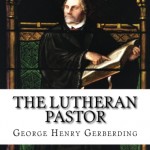One of the problems in contemporary theological scholarship is that it has sometimes aligned itself more-so with the academy than the church. Men and women sometimes enter the field of theology, not to further the work of Christ’s church, but instead to join the broader academic community and prove their bona fides to other scholars. There is then a lot of conversation of who has the most academically reputable degrees from the most well-known institutions. Seminaries are more willing to hire the academic PhD from Oxford with no particular practical ministry training, than the are an experience pastor with a PhD from an unknown school. This betrays a larger problem in the realm of theology: We’ve let it be guided in the way that the secular world is guided: by prestige, money, and novelty of ideas.
There are several implications of such a system. One is that young theologians and pastors are often pressured into giving up their conservative views simply for the sake of furthering their academic reputation. One simply needs to look at the number of scholars who have rejected Biblical inerrancy in the past couple of decades. In some ways, it looks like a whose who of Evangelical scholarship. One of the things I have found in dealing with those who have adopted such positions is that these convictions are not born out of a deep study and reverence for Holy Scripture, but by the pressure of their academic training. An inerrantist will hardly get a fair reading in many academic circles.
The church must also be aware of the fact that some have argued that schools which adopt traditional views of sexuality should lose their accreditation. This probably won’t happen within the next few years, but its a possibility that the church must face in its future. If this does happen in the future, what will we do? Will we give up our moral values for the sake of our academic credibility? Or perhaps this inevitable conflict will cause the church to rightly reevaluate itself, and maybe Biblical fidelity and practical ministry will once again become the cornerstone of our theological education rather than an attempt to fit-in with secular academia.












